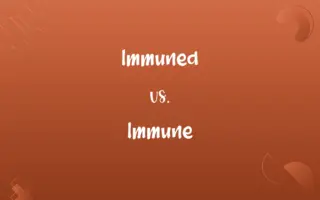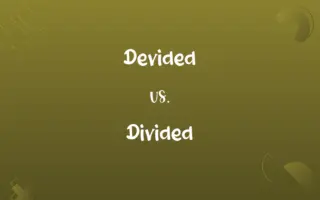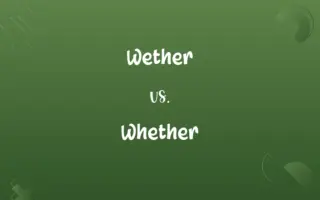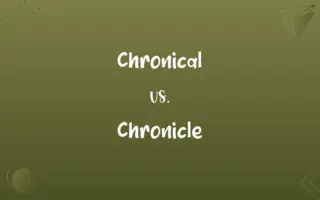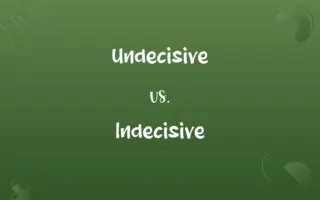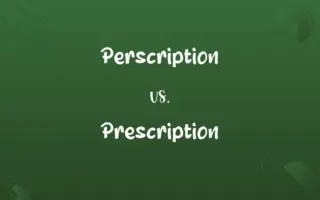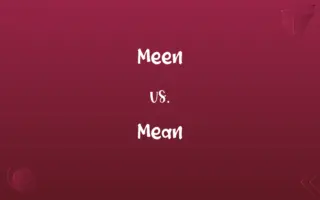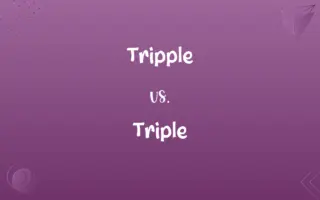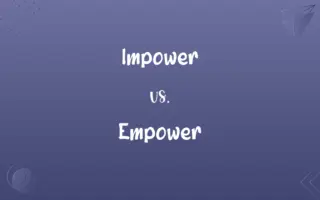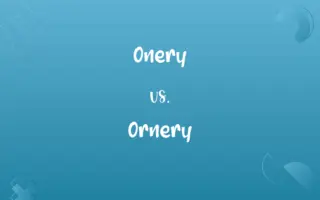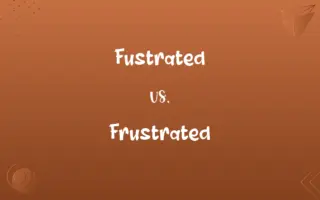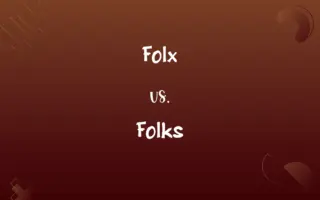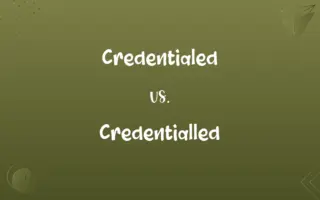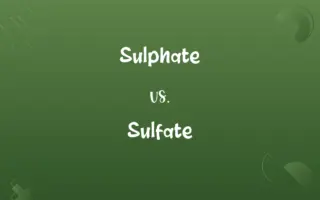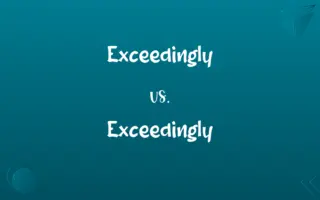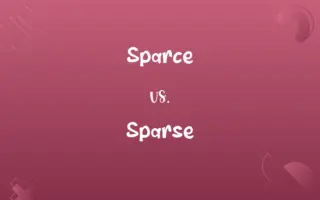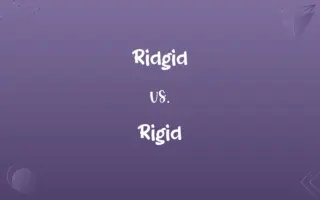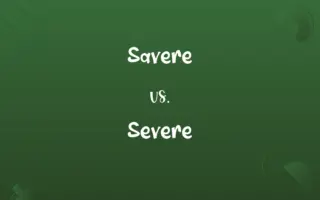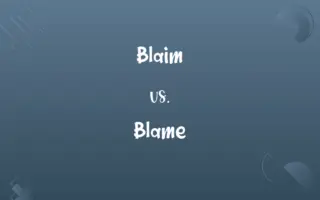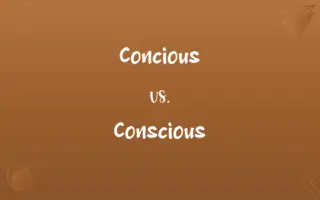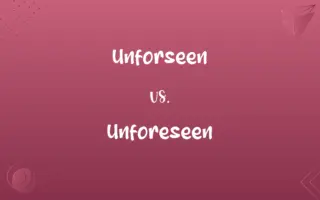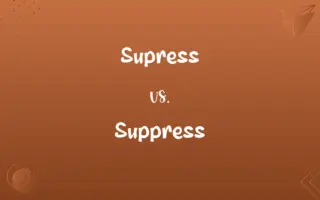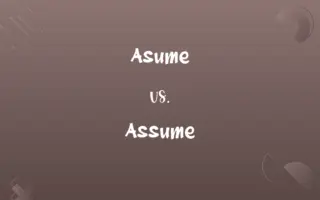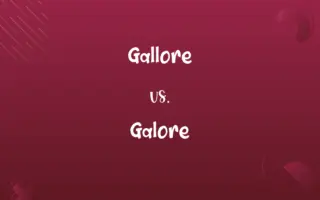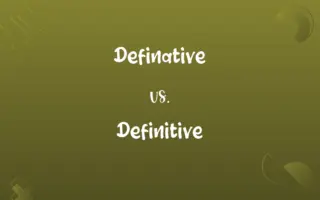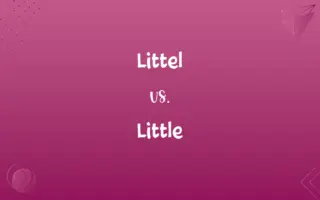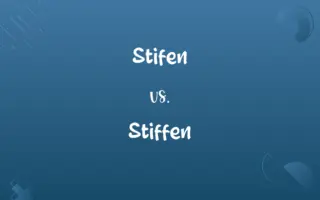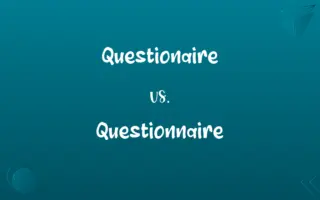Absorbant vs. Absorbent: Decoding the Right Spelling

By Shumaila Saeed || Published on December 25, 2023
"Absorbant is incorrect spelling while Absorbent is correct, denoting a material capable of soaking up liquid or moisture effectively."
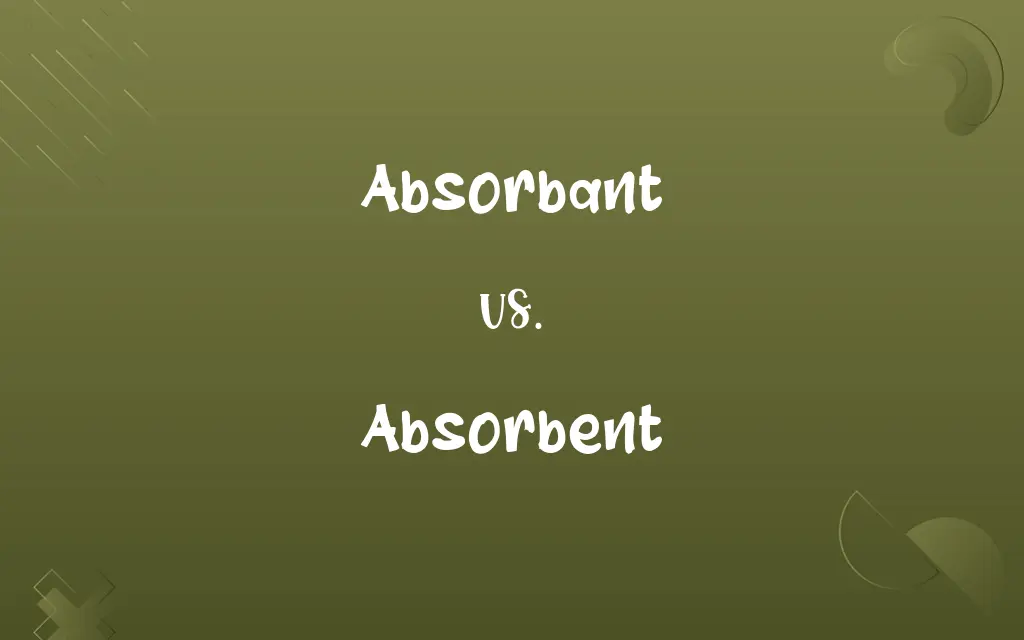
Which is correct: Absorbant or Absorbent
How to spell Absorbent?

Absorbant is Incorrect

Absorbent is Correct
How to remember correct spelling of Absorbent?
Remember 'ent' in 'absorbent' as 'energy to absorb,' linking its meaning and spelling.
Shumaila Saeed
Dec 25, 2023
Break it down: 'abs-orb-ent,' emphasizing the 'ent' which is key to its correct spelling.
Shumaila Saeed
Dec 25, 2023
Associate 'absorbent' with 'enthusiastic,' both ending with 'ent' and full of capacity.
Shumaila Saeed
Dec 25, 2023
Recall that 'absorbent' has 'ent' at the end, similar to 'efficient' in absorbing.
Shumaila Saeed
Dec 25, 2023
Think of 'absorbent' as 'able to absorb,' focusing on the 'ent' which implies capability.
Shumaila Saeed
Dec 25, 2023
Absorbent Definitions
A material that can easily soak up liquids or moisture.
Paper towels are a common absorbent material in kitchens.
Shumaila Saeed
Dec 14, 2023
A term for substances that can assimilate gases or liquids.
Activated charcoal is used as an absorbent in filtering water.
Shumaila Saeed
Dec 14, 2023
Capable of drawing in moisture through pores or spaces.
Certain types of soil are very absorbent, which helps in agriculture.
Shumaila Saeed
Dec 14, 2023
Describing a material's capacity to hold onto absorbed substances.
Absorbent pads are used in medical settings to manage fluids.
Shumaila Saeed
Dec 14, 2023
A substance that is capable of absorbing.
Shumaila Saeed
Oct 19, 2023
Having the ability or tendency to absorb; able to soak up liquid easily; absorptive.
Those paper towels were amazingly absorbent. That was quite a spill.
Shumaila Saeed
Oct 19, 2023
Anything which absorbs.
Shumaila Saeed
Oct 19, 2023
The vessels by which the processes of absorption are carried on, as the lymphatics in animals, the extremities of the roots in plants.
Shumaila Saeed
Oct 19, 2023
(medicine) Any substance which absorbs and neutralizes acid fluid in the stomach and bowels, as magnesia, chalk, etc.; also a substance, e.g., iodine, which acts on the absorbent vessels so as to reduce enlarged and indurated parts.
Shumaila Saeed
Oct 19, 2023
(chemistry) A liquid used in the process of separating gases or volatile liquids, in oil refining.
Shumaila Saeed
Oct 19, 2023
Absorbing; swallowing; absorptive.
Shumaila Saeed
Oct 19, 2023
Any substance which absorbs and neutralizes acid fluid in the stomach and bowels, as magnesia, chalk, etc.; also a substance e. g., iodine) which acts on the absorbent vessels so as to reduce enlarged and indurated parts.
Shumaila Saeed
Oct 19, 2023
A material having capacity or tendency to absorb another substance
Shumaila Saeed
Oct 19, 2023
Having power or capacity or tendency to absorb or soak up (liquids);
As absorbent as a sponge
Shumaila Saeed
Oct 19, 2023
Relating to a substance's ability to take in and retain liquid.
Sponges are highly absorbent, making them ideal for cleaning spills.
Shumaila Saeed
Dec 14, 2023
Repeatedly Asked Queries
What is the correct spelling for materials that soak up liquids?
The correct spelling is 'Absorbent,' referring to materials that soak up liquids.
Shumaila Saeed
Dec 25, 2023
Why is 'Absorbant' a common misspelling?
'Absorbant' is a common misspelling likely due to misinterpretation of the pronunciation or a misunderstanding of the suffix.
Shumaila Saeed
Dec 25, 2023
Are there any synonyms for 'Absorbent'?
Yes, synonyms for 'Absorbent' include 'spongy,' 'porous,' and 'soakable.'
Shumaila Saeed
Dec 25, 2023
What are common uses of absorbent materials?
Common uses include cleaning spills, in personal hygiene products, and in industrial applications for absorbing chemicals or oils.
Shumaila Saeed
Dec 25, 2023
What is the origin of the word 'Absorbent'?
The word 'Absorbent' comes from the Latin 'absorbere,' meaning 'to swallow,' reflecting its capacity to take in substances.
Shumaila Saeed
Dec 25, 2023
How do you pronounce 'Absorbent'?
'Absorbent' is pronounced as 'ab-SORB-ent,' with emphasis on the second syllable.
Shumaila Saeed
Dec 25, 2023
Can 'Absorbent' be used in different contexts?
Yes, 'Absorbent' can describe both physical materials and figurative concepts like an 'absorbent' mind.
Shumaila Saeed
Dec 25, 2023
Does 'Absorbent' have any other meanings besides its literal sense?
Primarily, 'Absorbent' is used in its literal sense, but it can be metaphorically extended to describe things that metaphorically 'absorb' or take in information or emotions.
Shumaila Saeed
Dec 25, 2023
How has the use of absorbent materials evolved over time?
Absorbent materials have evolved significantly, especially with advancements in technology leading to more efficient and specialized absorbents.
Shumaila Saeed
Dec 25, 2023
Is 'Absorbant' ever the correct spelling in any context?
No, 'Absorbant' is always an incorrect spelling; the correct form is 'Absorbent.'
Shumaila Saeed
Dec 25, 2023
How can one remember the correct spelling of 'Absorbent'?
Linking the word to similar sounding words with 'ent' or its function of absorbing can aid in remembering the correct spelling.
Shumaila Saeed
Dec 25, 2023
Are all absorbent materials the same in their absorbing capacity?
No, different absorbent materials have varying capacities and are chosen based on the specific need for absorption.
Shumaila Saeed
Dec 25, 2023
Can 'Absorbent' be used as a noun?
While 'Absorbent' is primarily an adjective, it can be used as a noun to refer to a substance that absorbs.
Shumaila Saeed
Dec 25, 2023
Is there any specific environmental impact associated with absorbent materials?
Yes, the environmental impact of absorbent materials varies, with some being eco-friendly and biodegradable, while others contribute to waste and pollution.
Shumaila Saeed
Dec 25, 2023
Share this page
Link for your blog / website
HTML
Link to share via messenger
About Author
Written by
Shumaila SaeedShumaila Saeed, an expert content creator with 6 years of experience, specializes in distilling complex topics into easily digestible comparisons, shining a light on the nuances that both inform and educate readers with clarity and accuracy.
